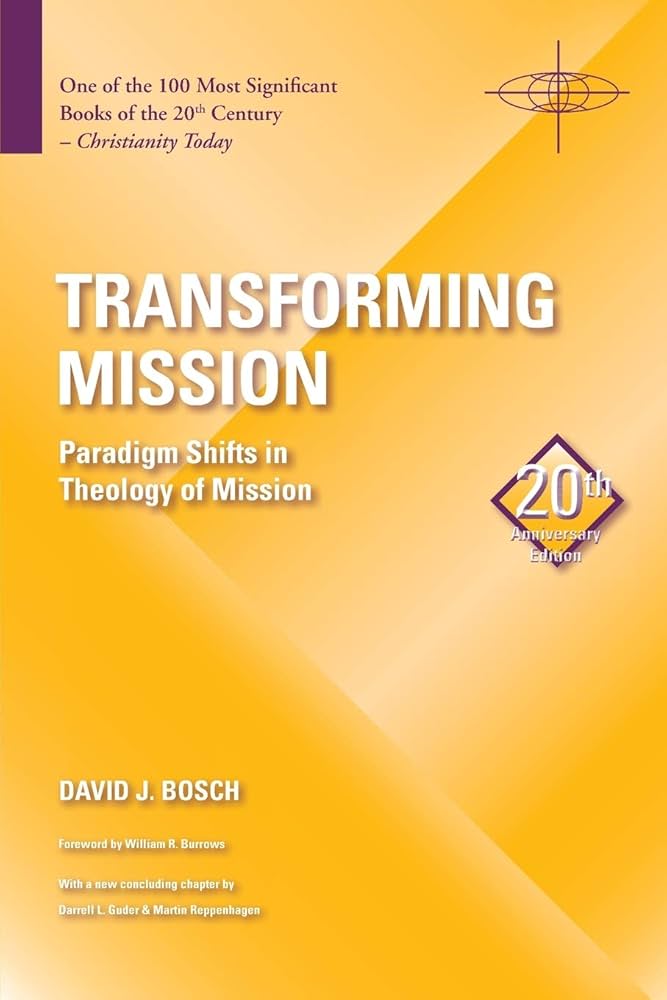by David J. Bosch (1991)
–
David Bosch offers a comprehensive look at successive developments in the history of the Christian mission. The back cover of the 19th printing of this 1991 book has scholars diverse as Hans Kung, Lesslie Newbigin and Alan Neely extolling its virtues.
“Part I: New Testament Models of Mission” is especially enlightening for anyone seeking to discern a “Jesus worldview.”
Bosch starts with a careful review of the apparent mission of Jesus, and then seeks to clarify it in thoroughgoing chapters on the writings of Matthew and Luke. The remaining two-thirds of the book demonstrate the cultural and institutional transitions in expressing that “greatest story ever told.”
“Part 2: Historical Paradigms of Mission” explores six major epochs. “Part 3: Toward a Relevant Missiology” discusses prevalent elements of Christian mission at the end of the 20thcentury.
Leading with the apparent “sayings” of Jesus as suggested in the Q source and the assertion that a focus on the activity of the earthly Jesus is necessary for a reference to Jesus’ concerns, Bosch emphasizes how inclusive Jesus’ mission was.
The injunction to love one’s enemies is described as “the most characteristic” saying of Jesus and illustrates inclusiveness. Bosch carefully displays Jesus’ approach with the reign of God as both present and future, and then explains how this applies to the Law (Torah) and how people matter more than rules and rituals.
Jesus’ relation to his disciples is contrasted with normal rabbinic discipleship (talmid). Developments after Jesus’ crucifixion show immediate applications of following his teaching, including failures.
The reader may find the following chapters on Matthew and Luke-Acts particularly illuminating. They are shown as writers addressing respectively their primarily Jewish Christian and Gentile Christian audiences in the late 70s or the early 80s of the first century AD, after the Romans had finally quelled the Jewish revolution in Israel. They represent understandings of Jesus’ intentions a half-century after his death.
This book holds a rich trove of information for those who want to study the culture in which the historical Jesus lived, along with how Jesus behaved within it. Bosch also conveys a wealth of information about the early church and both the Eastern Orthodox and Roman Catholic developments in mission, before moving on to the Protestant Reformation and recent centuries.
It is an excellent resource for personal study, especially for teachers of the Bible.
Bosch gives particular attention to the Sermon on the Mount in his chapter on Matthew, stressing that it expresses the essence of the ethics of Jesus. He then observes how Christians have found ways around this through the centuries.
He writes in agreement with other recent scholars, “…there is no getting around the fact that, in Matthew’s view, Jesus actually expected all his followers to live according to these norms always and under all circumstances.”
Review by Tom Prevost, retired minister and mission administrator in Chattanooga, Tenn.

